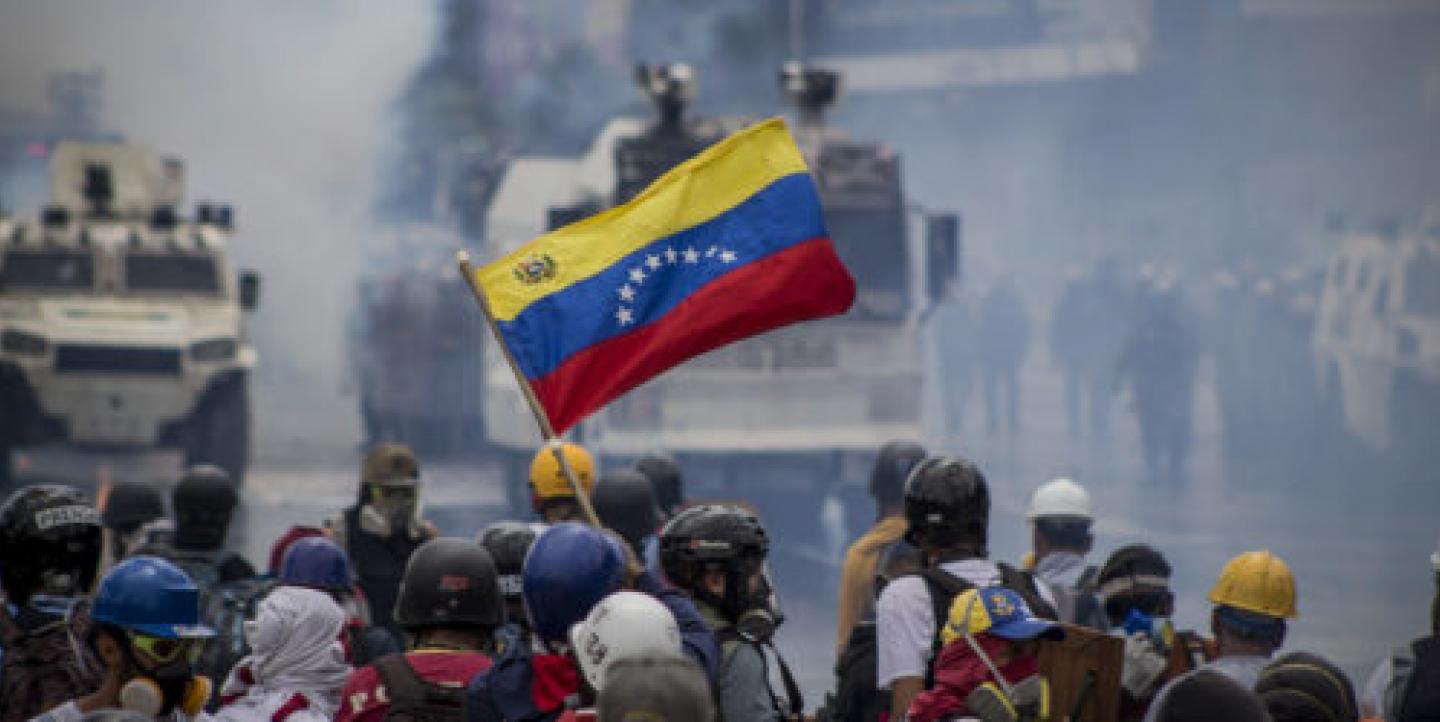Asphyxiated by tight control over printing paper, the dramatic change in the editorial lines of traditional media – which led to dismissals and voluntary terminations – and the censorship promoted by the national government, many journalists in Venezuela have opted to create their own media organizations.
As evidence, there are 72 Venezuelan startups in the SembraMedia directory. Forty-three percent of them were launched after 2014, a year in which anti-government protests escalated and caused unprecedented records of repression and other anti-democratic acts: more than 3,300 protesters were detained, 973 were injured and 42 were killed.
With the traditional media "invited" by the National Telecommunications Commission (Conatel) to suppress the broadcasts of the protests in order to avoid a “copycat effect” among citizens, the media landscape suffered from constant self-censorship, a key ingredient in understanding the birth of nine media startups in 2014, 16 in 2015 and six in 2016.
The directory includes investigative journalism initiatives such as RunRun.es, Efecto Cocuyo, El Estímulo, Crónica Uno and Armando Info; examples of collaborative journalism, such as El Pitazo, La Vida de Nos, Te Lo Cuento News; hyperlocal journalism like Tane Tanae and Diario El Vistazo; and those focused on specialized journalism, such as Vida Agro and Viva el Cacao.
"Venezuelan journalists decided to take a step forward and say 'I have to tell this story,' to preserve expression spaces and jump over barriers," says Nela Balbi, head of Venezuela's Institute for Press and Society.
By August 2017, pressure on the mainstream media caused 46 radio stations and three international channels to cease operations, creating more uncertainty and instability in journalism.
This figure contrasts with the number of Venezuelan digital organizations and journalists who, in turn, are being recognized with the most prestigious awards — from Pulitzer Prizes to the Gabriel García Márquez Journalism Award.
Innovation and flexibility to keep journalism afloat
The country’s protests coincided with the emergence of new digital media, such as La Vida de Nos.
Launched in January 2017, this is the youngest startup registered on SembraMedia’s directory. It’s original idea of telling universal long-form stories has adapted to the daily dynamics of demonstrations and repression, giving visibility to families of political prisoners, survivors of human rights abuses and more.
"How can you turn your back on so many injustices and dramatic events?" said Albor Rodríguez, La Vida de Nos' director and editor. "We entered this vertiginous situation without ceasing to do what we want. We do not cover events; we offer a different kind of reporting."
LVN illustrates how flexibility has been key in standing against adversity. Today, LVN is not only sponsored by companies such as Bigott, Banesco and international organizations, but also offers training, along with El Pitazo, another digital native.
The digital media resistance in Venezuela is also measured by the financial efforts it makes to preserve its operational capacity. Crowdfunding campaigns, sponsored content and online advertising are becoming more and more frequent.
Offline initiatives such as Bus TV and the reemergence of "face to face" news by Crónica Uno add to the list of solutions that Venezuelan journalism has created to deal with connectivity problems.
The goal is always the same: to tell what’s happening.
Diaspora journalism
There are more than 2.5 million Venezuelans living outside the country, according to researcher Iván de la Vega, head of the International Migration Laboratory. And there are also journalists committed to these satellite audiences.
On April 10, 2017, the more than 300 journalists who worked on the Panama Papers investigation received the Pulitzer Prize for explanatory reporting, including Venezuelan Emilia Díaz-Struck and fifteen other journalists who were part of the national team coordinated by Armando.info. Díaz-Struck, who served as one of the editors of the Panama Papers investigation, is a journalism professor at the Central University of Venezuela (UCV) and a former reporter-in-residence at the New England Center for Investigative Information at Boston University and Connectas.
The global dispersion of Venezuelan media professionals has been good news for collaborative journalism. The coverage of July’s plebiscite gathered 40 Venezuelan emigrant journalists in 20 countries who voluntarily reported the details of a referendum that brought 7.5 million Venezuelans inside and outside the country to the polls.
“It was a truly historic day for digital journalism; we reached two million people on social media and received more than 10,000 unique visits in the website,” explained José Rafael Mata, founder and creative director of Panas Digitales, a site built by journalists to connect Venezuelans abroad and offer information and advice about business opportunities, jobs, studies, legal assistance, etc. The project, coordinated by Mata, is allied with RunRun.es, El Pitazo, Vivo Play, Crónica Uno and Diario Tal Cual.
Awarded impact
After a downturn in its reputation, a byproduct of the increased political polarization after the coup against President Hugo Chávez in 2002, journalism in Venezuela has gained important international recognition.
In 2017, El Estímulo, won the Inter American Press Association (IAPA) News Coverage Award for the series "Die once, twice and three times of hunger." Armando.info and Connectas obtained honorable mentions from IAPA for "The last prisoners of the Nazis in Latin America."
In 2016, "Without treatment," by María Laura Chang of Efecto Cocuyo, and "Tumeremo massacre," published by Correo del Caroní in alliance with RunRun.es and El Pitazo, were finalists for the Gabriel García Márquez Journalism Award.
The series Radiography Misión Vivienda: testimonies, figures and challenges, published by Contrapunto, won first place in the Instituto Prensa y Sociedad Venezuela 2016 Competition. The second place award went to RunRun.es for a corruption case involving one powerful family. And third place recognized two works: an investigation about illegal surveillance by RunRun.es and an investigation about a group of young military health practitioners that were appointed to a maternity hospital, published by Armando.info.
Nilsa Varela Vargas is ambassador of SembraMedia in Venezuela and founder of Diario El Vistazo. Follow her on Twitter.
This post originally appeared on SembraMedia and is republished here with permission.
Image by Rayner Peña. R. for El Pitazo.

